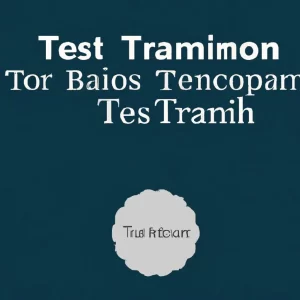One of the key considerations in estate planning is the establishment of a trust to protect your assets and ensure they are passed down according to your wishes. As experienced lawyers at Morgan Legal Group in New York City, we understand the importance of trust planning and the potential costs involved. In this article, we will delve into the factors that influence the cost of setting up a trust, offering insights and guidance to help you make informed decisions for your financial future.
Understanding the Various Costs Associated with Establishing a Trust
One of the key aspects to consider when establishing a trust is the various costs associated with the process. It is essential to have a clear understanding of these costs to make informed decisions and ensure that the trust is set up properly. Here are some of the key costs that you need to consider:
- Legal Fees: Hiring an experienced attorney to help you establish a trust is essential. The legal fees can vary based on the complexity of the trust and the attorney’s expertise.
- Trustee Fees: If you appoint a professional trustee to manage the trust, there will be additional costs associated with their services. These fees can vary depending on the trustee’s experience and the assets in the trust.
- Asset Transfer Costs: Transferring assets into the trust may involve fees such as recording fees for property transfers, appraisal fees for valuing assets, and brokerage fees for transferring securities.
In addition to these costs, there may be other expenses such as court filing fees, administrative fees, and ongoing maintenance costs for the trust. It is important to carefully review all the potential costs with your attorney to ensure that you have a clear understanding of the financial implications of establishing a trust. By being aware of these costs upfront, you can make informed decisions and plan accordingly for the financial aspects of setting up a trust.
Factors that Influence the Overall Cost of Setting Up a Trust
can vary depending on a variety of circumstances and considerations. Some of the key factors that can impact the cost of establishing a trust include:
- Complexity of the trust structure and provisions
- Type of assets being transferred into the trust
- Number of beneficiaries involved
- Choice of trustee(s)
Furthermore, other factors that may influence the total cost of setting up a trust include legal fees, administrative costs, and ongoing maintenance expenses. It’s important to carefully consider these factors and consult with a knowledgeable trust attorney to ensure that the trust is established in a way that aligns with your specific goals and requirements. Planning ahead and seeking professional guidance can help mitigate any potential challenges and ensure that the trust is set up in a cost-effective and efficient manner.
Comparing Different Types of Trusts and Their Associated Costs
When considering setting up a trust, it is important to understand the different types available and their associated costs. Each type of trust serves a unique purpose and may have varying fees and expenses. Below is a comparison of some common types of trusts and their general costs:
Revocable Living Trust: This type of trust allows the grantor to maintain control over their assets during their lifetime and can be modified or revoked as needed. The costs associated with setting up a revocable living trust typically include attorney fees, trustee fees, and any administrative costs. Irrevocable Trust: Unlike a revocable trust, an irrevocable trust cannot be easily changed or revoked. This type of trust may involve higher upfront costs due to the complexity of the legal documents and the involvement of a trustee. Additional costs may include ongoing management fees and taxes.

Expert Recommendations for Minimizing Trust Establishment Expenses
When it comes to establishing a trust, there are various expenses involved that individuals need to consider. It’s important to understand the costs associated with setting up a trust in order to make informed decisions. include:
- Researching Different Trust Options: Before setting up a trust, it’s essential to explore different trust options available. Understanding the pros and cons of each type of trust can help in choosing the most cost-effective option.
- Working with an Experienced Attorney: Hiring an experienced trust attorney can help in minimizing expenses associated with trust establishment. A skilled attorney can guide individuals through the process, ensuring that all legal requirements are met efficiently.
Q&A
Q: How much does a trust typically cost to set up?
A: The cost of setting up a trust can vary depending on the complexity of the trust and the services of the attorney drafting it.
Q: What are some common expenses associated with establishing a trust?
A: Some common expenses include legal fees, filing fees, and potential trustee fees.
Q: Are there ongoing costs associated with maintaining a trust?
A: Yes, ongoing costs may include trustee fees, investment management fees, and administrative costs.
Q: Can the cost of a trust be offset by potential tax benefits?
A: Yes, depending on the type of trust and individual circumstances, there may be potential tax benefits that can offset the cost of establishing and maintaining a trust.
Q: Are there alternative options for estate planning that may be more cost-effective than setting up a trust?
A: Yes, there are alternative options such as a will or a living trust that may be more cost-effective for some individuals depending on their specific needs and financial situation.
Key Takeaways
In conclusion, the cost of setting up a trust can vary depending on various factors such as the type of trust, the complexity of the estate, and the location of the individual creating the trust. It is important to carefully consider all potential costs associated with establishing a trust before making a decision. Remember to consult with a trust attorney or financial advisor to ensure that you fully understand the expenses involved and to help you create a trust that best suits your needs. Ultimately, while the cost of a trust may seem significant, the benefits and peace of mind it can provide for you and your loved ones can be priceless.











